Idioms Teaching Resources
Help students understand idioms and how to use them in writing this school year with idiom worksheets, activities for kids and more teacher resources!
Ensure your students can pick up on nuances in language and explain the most common idioms in the English language, along with common adages and popular proverbs. Aligned with both the TEKS and Common Core English curriculum, this collection includes editable worksheets and digital Google Slides templates created to save you time on lesson planning.
New to teaching about idoms, or just looking for fresh ways to engage your students? Read on for a primer from our teaching team, including some fun idioms examples for kids, a simple definition to share with your students, idomatic vocabulary to help build student understanding and more.
What Is an Idiom? A Kid-Friendly Definition
If you're planning your lesson on idioms, and you're searching for an idioms definition that will make sense to kids, look no further.
An idiom is a phrase or saying that has a special meaning that is different from the meaning of the words in the phrase. This is a type of figurative language that is often used by writers to make them more interesting and engaging for the reader.
For example, the phrase "busy as a bee" is a common idiom in English. If you were to say, "Javon is busy as a bee," it would not literally mean that Javon was striped yellow and black and flew around pollinating flowers.
It would simply mean that Javon was very busy and active — just like a bee is when it quickly buzzes around a flower garden.
The English language is full of popular sayings like this that many of us use every day!
Idiom vs. Metaphor — What's the Difference?
Is an idiom a metaphor? If you've fielded this question from one of your students, and you're trying to explain just how these two figures of speech are different, our teacher team has got your back!
Idioms and metaphors are both examples of figurative language that we can use to make our writing more fun and interesting to read, but they are not the same thing.
Let's look at the key differences between an idiom and a metaphor:
- Metaphor — Describes something by indirectly comparing it to something else
- Idiom — Describes something using language that doesn't make literal sense
10 Common Food-Based Idiom Examples for Kids to Share With Your Students
There are plenty of common American sayings your students have probably heard over the years, even if they didn't yet know they were idiom examples.
Do you need an idioms list to show just how common these expressions are and get students started with this figure of speech? Let's dive into some of our teacher team's favorite idioms for kids — all based on food!
- Piece of cake
- Butter her up
- The whole enchilada
- Spill the beans
- Apple of my eye
- Icing on the cake
- Couch potato
- Bringing home the bacon
- Two peas in a pod
- Going bananas
- Plus Plan
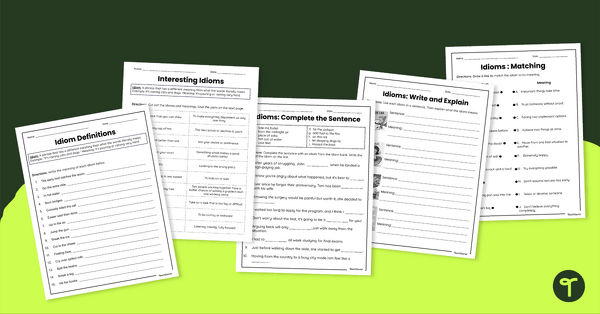
Interesting Idioms Worksheets
Teach figurative language with these idioms worksheets that will introduce your students to many of the most commonly used idioms.
- Plus Plan
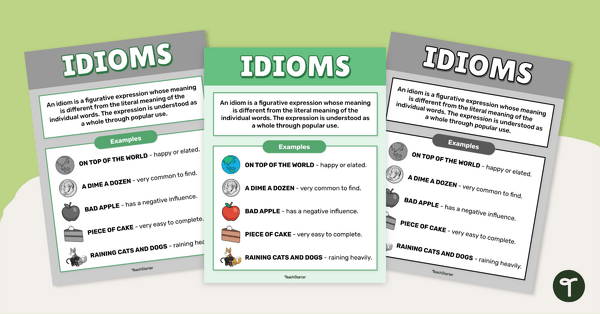
Idioms Poster
Hang this idioms poster in your classroom to give your students a reference for this important piece of figurative language.
- Plus Plan
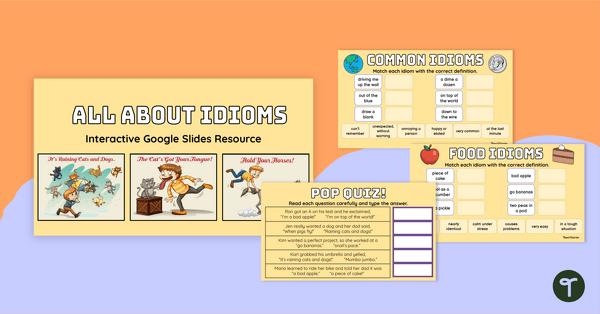
Google Slides Interactive - Idioms Activity
Build vocabulary and have fun with an interactive Idioms activity.
- Plus Plan
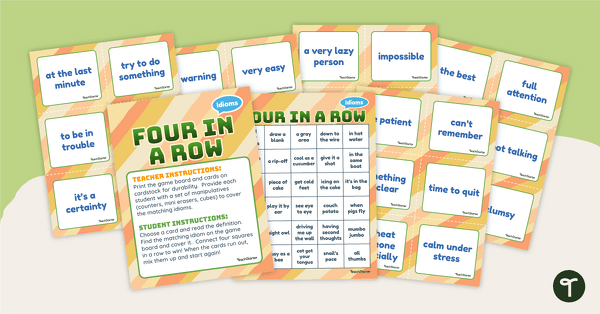
Idioms Four in a Row Game
Practice identifying the meaning of common idioms with an exciting game of Four-in-a-Row!
- Plus Plan
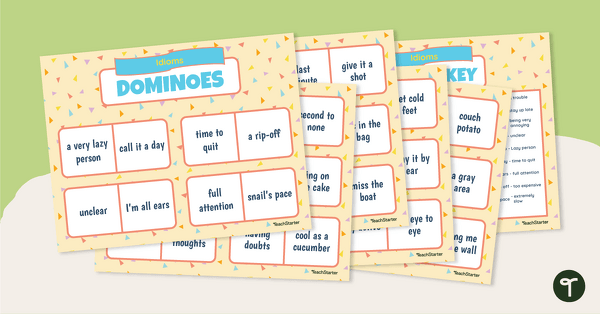
Idioms Dominoes
Build vocabulary and have fun with idiom games.
- Plus Plan
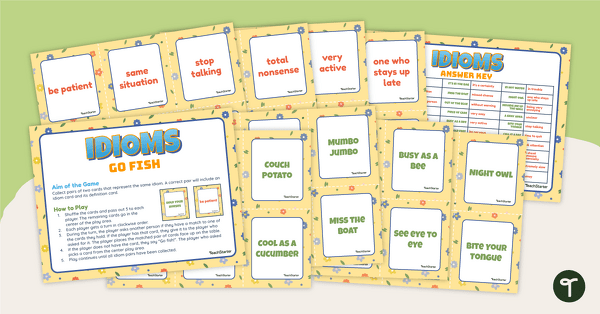
Idioms Go Fish Card Game
Understand the meaning of common idioms with a classroom game of Idioms-Go Fish!
- Plus Plan
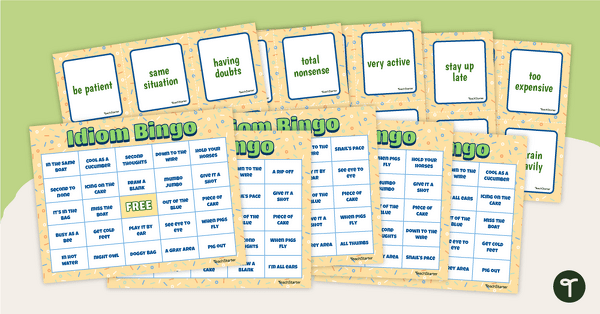
Idioms Bingo Game
Build vocabulary and have fun with a classroom game of Idiom Bingo.
- Plus Plan
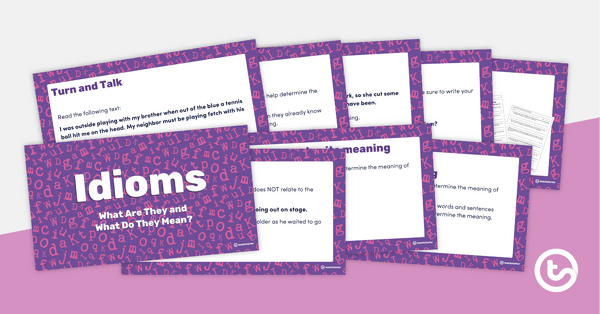
Idioms: What Are They and What Do They Mean? PowerPoint
An editable PowerPoint presentation to use when teaching idioms.
- Plus Plan
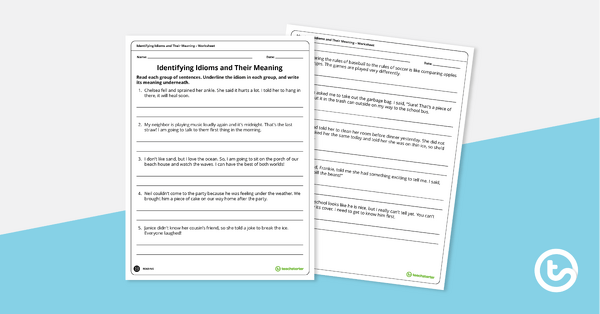
Identifying Idioms and Their Meanings - Worksheet
A worksheet to practice identifying idioms and their meaning.
- Plus Plan

Idioms
A 60 minute lesson in which students will explore some commonly used idioms.